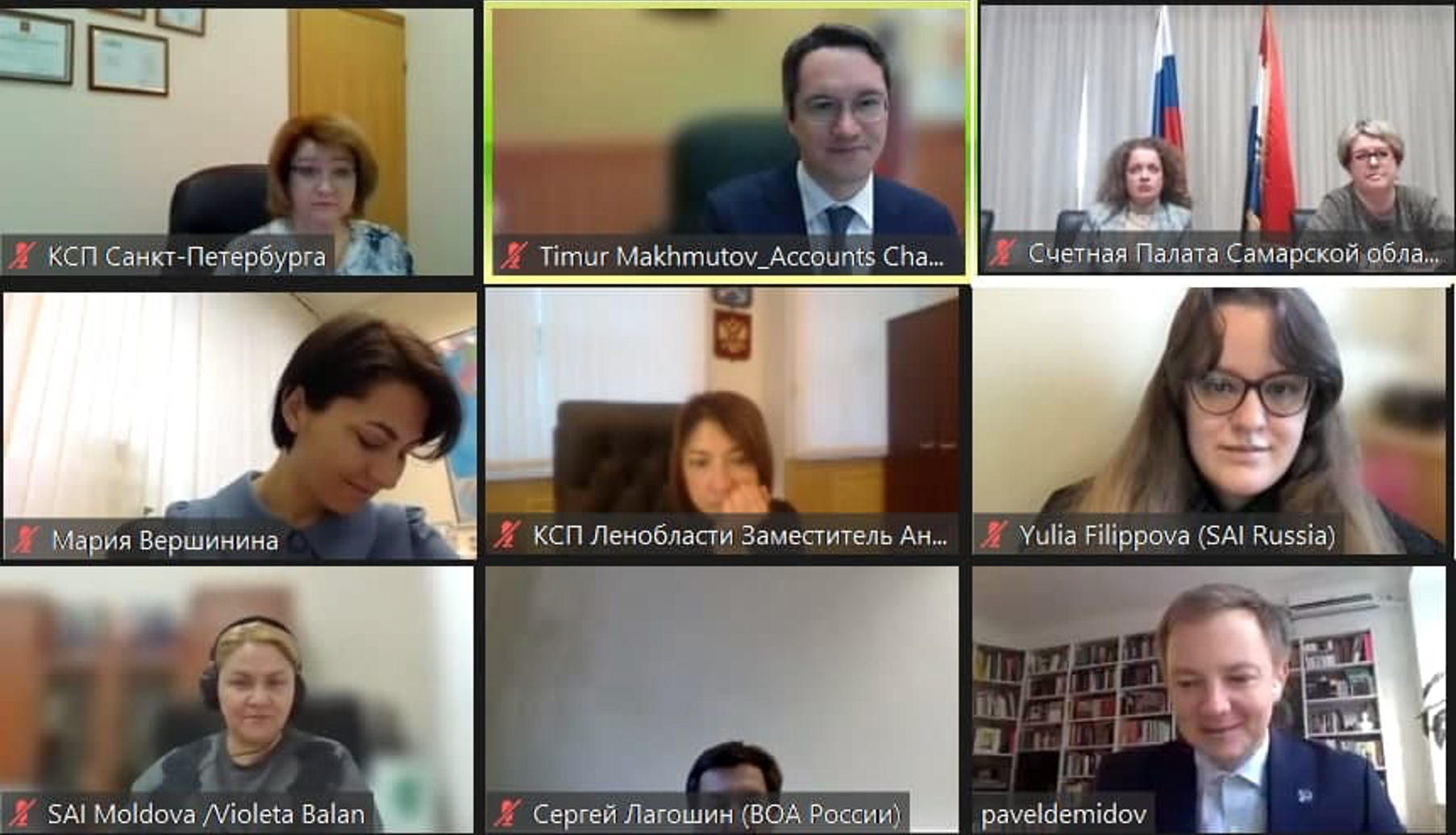
Annual Report Drafting and Strategic Audit in the ACRF Practices
A workshop on preparing annual reports and strategic audit highlights in the Accounts Chamber of the Russian Federation was held as part of a networking session with representatives of the Council of Heads of Supreme Governmental Audit (Financial Control) Institutions of the CIS Member States on 23 November 2021.
The participants talked about the strengths and structure of the updated Accounts Chamber annual report and discussed strategic audit highlights, its types of criteria and aspects of employing the theory of change in strategic audit.
Timur Makhmutov, Director of the Department for International and Regional Cooperation, opened the workshop by stating that the proactive approach of the CIS SAIs helped pinpoint a wide range of topics in an extensive thematic training course on methodologies in different audit fields.
The first part of the workshop was focused on the issues of drafting annual reports. Pavel Demidov, Director of the Communications Department, told about the specific changes introduced by the Accounts Chamber in preparation of annual progress reports and described the format for presenting information about different reference groups, including parliament, parliamentary committees and the public.
“The annual report is a key communication product demonstrating accountability to society and parliament”,
Mr. Demidov emphasized.
During the second part of the meeting, participants addressed strategic audit issues. Sergey Lagoshin, Director of the Research and Methodology Department, delivered a report and presentation called “Assessment criteria for programmes and projects used as part of the strategic approach to audit practices”. In this report, Mr Lagoshin provided a detailed outline of the characteristics and format of strategic audit in the Accounts Chamber, and the types of criteria used for properly assessing different projects and programmes, as well as their viability and risks. He also highlighted the specifics of strategic audit under External Public Audit Standard SGA 105 “Strategic audit”.
“The standard determines a wide range of subjects to which strategic audit applies, such as existing programmes, the status of individual management systems, and challenges of specific target groups. Audited entities include federal ministries and agencies, and publicly owned companies”,
he explained.
Yulia Filippova, Deputy Inspectorate Chief at the Research and Methodology Department, added to the strategic audit subject with a report titled “The theory of change in the context of strategic audit”. She pointed out the importance of employing cause-and-effect relations in assessing impact on performance of projects and programmes.
“An action or project must change the behaviour of its beneficiaries, be they the general public, companies or market players. The auditor must answer whether the mechanism of the analyzed measure helps lift the restrictions that thwart the desired effects”,
she stressed.
According to the speaker, the theory of change is advantageous in that it may be used when the data do not suffice for rigorous impact evaluation. The theory of change helps demonstrate the rationale behind implementing a project or programme, identify the risks and engage different stakeholders in the project evaluation process.
In conclusion, the participants said that the meeting helped them share their experiences, talk about the best practices they use and make plans for the future. The meeting gathered representatives of SAI of Azerbaijan, Armenia, Belarus, Kazakhstan, Kyrgyzstan, Moldova, Tajikistan and Uzbekistan, as well as Regional Audit Institutions of the Russian Federation and territorial agencies of the State Control Committee of Belarus.



